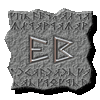When you have been in a war with a faction and manage to have peace with them..Its always seems to be a very short peace, becasue they always seems to attack as fast as they can. My question is...is it possible to have peace for a longer time or for ever with a faction?
My second question is...Is it possible to have more help by an ally in a war than it is to day? An ally to day dosent care much if I are attacked.
How will EB do with does problem??

Sorry for my bad english..





 Reply With Quote
Reply With Quote







Bookmarks